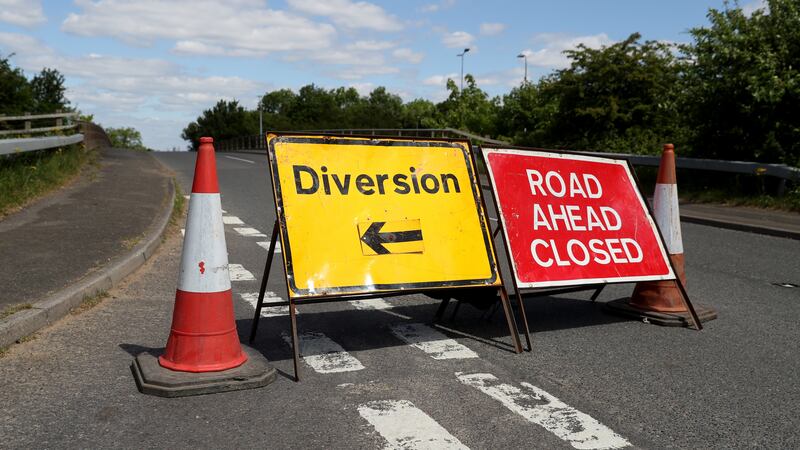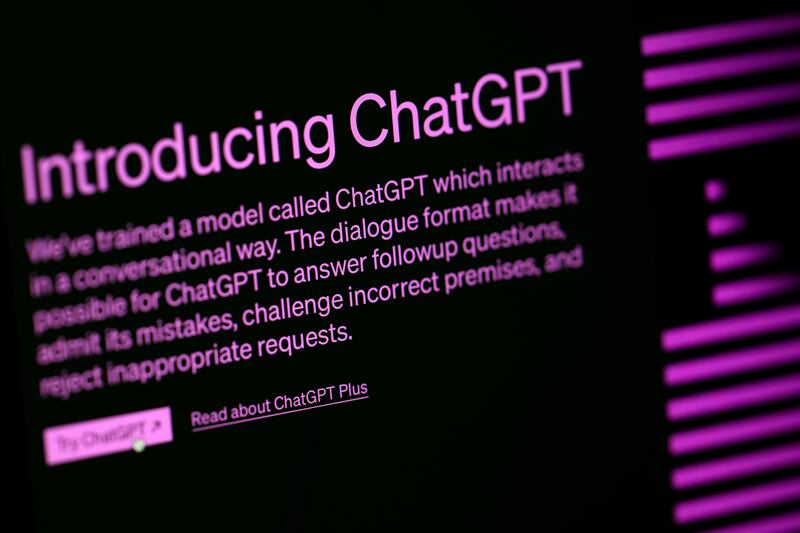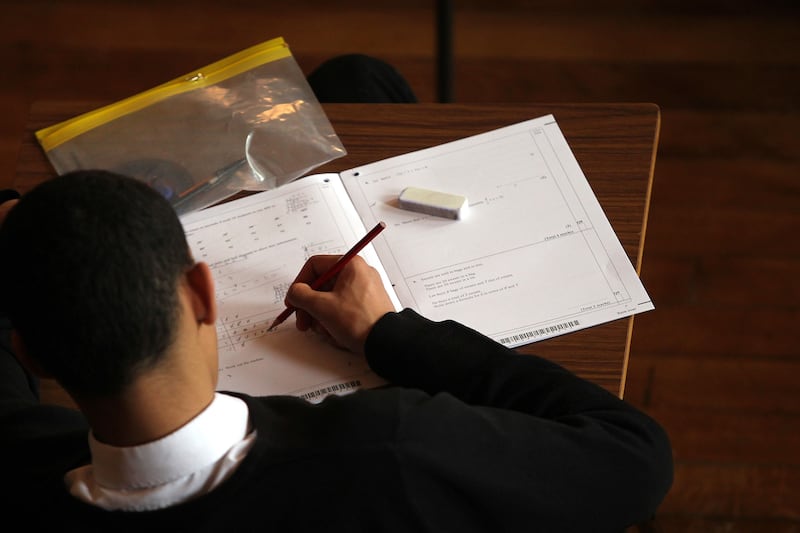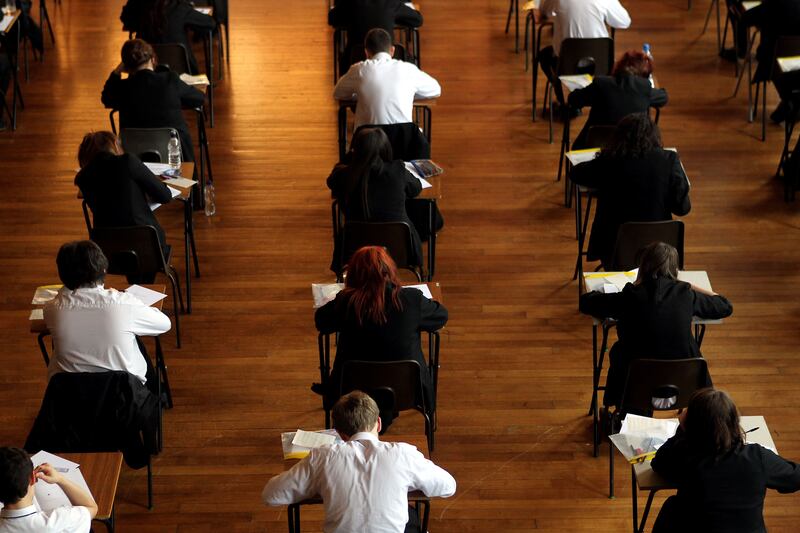CHANGES to exams in 2021 have angered teachers and pupils in equal measure. Here, Education Correspondent Simon Doyle looks at some of the issues causing distress.
::
THE ink was still drying on proposed revisions to how exams will operate next summer when principals began voicing discontent.
The announcement by minister Peter Weir was labelled a devastating blow to the education and wellbeing of pupils and teachers.
Mr Weir has been accused of prioritising the examinations system over the needs of young people.
It has been warned that the raft of changes, which are still being digested, will cause widespread distress.
One thing that everyone agrees is that there can be no repeat of this summer's chaos.
A-level, AS-level and GCSEs were all cancelled with pupils instead receiving predicted grades.
Controversial algorithms boosted some schools' performance and led to thousands of young people having results downgraded.
Teacher-predicted grades were later honoured, leading to record pass rates.
While the plan is for exams to proceed in 2021, schools must keep a portfolio of evidence of students' progress throughout the year "in case this is needed for contingency arrangements".
For those taking GCSEs, the number of exams will be reduced significantly.
Pupils will be assessed in all written units of English and maths, but speaking and listening in English language will be scrapped.
There will also be no speaking components in Irish, French, German and Spanish.
For those taking A-levels, it is pretty much business as usual as they will not see the amount of content reduced significantly, if at all.
They have also been told that the generous AS-level grades they were awarded in the summer will not form part of their A-levels in 2021.
In addition, while exams will start later next summer, they will be crammed into a shorter timeframe.
Mr Weir last week sent two separate but similar letters explaining the shake-up - one to parents and one to principals.
It has not helped him win support among head teachers for omitting a key paragraph.
He wrote to parents saying it was "important that everyone understands that in agreeing that certain units of a qualification will not be assessed is not an indication that they should not be taught".
"Covering content, even if it is not assessed, may be important in supporting progression to the next level of study," he added.
This was left out of the letter to principals.
Leaders are also concerned that the minister has not yet disclosed any `special circumstances' for exams if pupils or their teachers have had a positive Covid-19 test or multiple periods of self-isolation.
Over the last few months, the NAHT union has consulted widely with post-primary members and provided what it believes to be workable solutions to both the Department of Education and CCEA.
It said the minster had ignored the professional opinions of leaders and practitioners working with young people on a daily basis.
The union agrees that it should be the priority of all educationalists to ensure that public exams can go ahead.
However, it is particularly alarmed at the lack of mitigations for GCSE English and maths.
The decision not to permit a reduction in the burden of assessment in these subjects failed to take account of lost learning from March to June 2020, the union argued.
It also failed to recognise continuing disruption.
NAHT's president in Northern Ireland, Graham Gault said it was "demoralising and increasingly frustrating".
Young people too are unhappy. The recently-formed Secondary Students' Union of Northern Ireland said it was deeply disappointed.
It said the proposals failed to consider the circumstances young people students were currently studying under, nor the vast lost learning time this year and last.
Its president, Cormac Savage said Covid-19 cases were rising exponentially and many secondary school pupils were contracting the virus - leaving more being told to self-isolate for 14 days as a close contact.
The suggestion that this year's exam pupils would, despite 14 day disruptions at a time, be able to cover the same amount of content in the same detail was "farcical".
"Our students will suffer because of these proposals. They are reactionary rather than proactive. There have been no allowances made for the seismic disruption to learning in 2020/21," Mr Savage said.
"The unique circumstances that this year's exam students are facing have not been accounted for by minister Weir or CCEA. SSUNI will be campaigning for fair exam arrangements for this academic year which do not disadvantage our students."
Contingency plans are being drawn up to be made available should there be a need to respond quickly to shifting circumstances.
As the public health situation can change rapidly, there is a need to finalise and make public these contingencies as soon as is possible.
It is unlikely that they will quell the anger, however.








